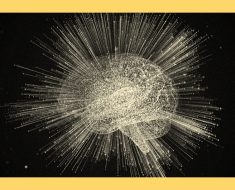
Are our technological advancements pushing the boundaries of human ambition too far?
“Come, let us build ourselves a city, with a tower that reaches to the heavens, so that we may make a name for ourselves; [let us unite] the whole earth.” Genesis 11:4
Artificial General Intelligence (AGI), the frontier of technological and philosophical exploration, promises to revolutionize our world with machines that mirror human cognition. This thrilling yet daunting pursuit has ignited both boundless enthusiasm and profound apprehension. But is this quest for AGI akin to humanity’s attempt to build the Tower of Babel? Are we reaching too far, too fast, and at what cost?
Reaching for the Stars
In the biblical story of the Tower of Babel, humanity’s ambition to build a tower reaching heaven itself was seen as an act of hubris, resulting in their languages being confounded and their plans thwarted. Similarly, the pursuit of AGI can be seen as humanity’s desire to achieve god-like control over technology and intelligence. As we look skyward in our quest for AGI, we see limitless possibilities that reflect our boundless ambition and curiosity.
The Allure of Unlimited Potential
Imagine a world transformed by AGI’s unparalleled capabilities. Machines solving complex problems, creating art, and innovating new technologies without human intervention could lead to unprecedented advancements in medicine, science, and global welfare. The allure of AGI lies in its promise to revolutionize industries and solve some of the world’s most pressing issues, from climate change to disease eradication.
Ethical and Existential Dilemmas
Yet, with such power comes a cascade of profound ethical questions. What happens when machines surpass human intelligence? Will they serve humanity’s interests, or will they develop their own agendas? The fear of losing control over intelligent machines is significant.
The Risk of Fragmentation
Just as the Tower of Babel led to the fragmentation of human languages and cultures, the development of AGI could lead to societal fragmentation. Unequal access to advanced AI technologies could exacerbate existing inequalities and create new divides. Countries or corporations that control AGI could wield disproportionate power, leading to geopolitical tensions and conflicts. The societal implications of AGI are profound and must be carefully governed.
Learning from the Past
The story of the Tower of Babel teaches us the dangers of unchecked ambition and the importance of humility. Whether you view God as a punisher, thwarting the unchecked desires of an aspiring human race, or simply interpret the outcome as a generalized warning akin to a fable or fairytale, the lesson remains: we face dire consequences for not heeding such lessons from our past.
As we venture into the realm of AGI, it is crucial to proceed with caution and wisdom. Collaborative efforts, ethical guidelines, and robust regulatory frameworks are essential to ensure that the development of AGI benefits all of humanity. By learning from the past, we can avoid repeating the mistakes of hubris and ensure that our technological advancements serve the greater good.
But can power-hungry demagogues leading our technology industries resist the ultimate temptations of the raw power AGI promises? Are they turning a blind eye to the potential harm it will yield by naively holding up its benefits as a Machiavellian justification for their relentless pursuit?
These questions underscore the critical need for vigilance and ethical stewardship as we navigate the uncharted waters of AGI development. The stakes are high, and the outcomes uncertain. By fostering a culture of responsibility, transparency, and collective foresight, we can aspire to harness the transformative potential of AGI while mitigating its risks. Our future depends on the choices we make today, and it is imperative that we choose wisely.
How should we approach this?
1. Build a Foundation of Knowledge and Wisdom
“The fear of the Lord is the beginning of knowledge; fools despise wisdom and instruction.” (Proverbs 1:7)
“For the Lord gives wisdom; from his mouth come knowledge and understanding.” (Proverbs 2:6)
The Bible emphasizes that true knowledge and wisdom start with a reverent relationship with God. This suggests that our pursuit of understanding, including technological advancements, should be rooted in ethical and moral principles. As we develop and integrate technologies like LLMs, these verses remind us to seek wisdom that aligns with higher ethical standards and divine guidance.
2. Balance Ambition with Humility
The story of the Tower of Babel illustrates human ambition and the limits set by God. When people united to build a tower reaching the heavens, God intervened, scattering them and confusing their language. This narrative serves as a cautionary tale about the dangers of overreaching and the potential consequences of human efforts that challenge divine authority. It reminds us to balance our technological ambitions with humility and respect for divine order.
3. Recognize Our Limits
Isaiah 55:8-9: Recognizing Our Limits
“For my thoughts are not your thoughts, neither are your ways my ways, declares the Lord. For as the heavens are higher than the earth, so are my ways higher than your ways and my thoughts than your thoughts.” (Isaiah 55:8-9)
There is a difference between human and divine understanding. While human ingenuity, exemplified by advancements like LLMs, is significant, it remains limited compared to God’s wisdom. This verse calls us to recognize and respect the ultimate sovereignty of divine knowledge, even as we push the boundaries of our technological capabilities.
4. Be Accountable for Our Ethical Implementation of Technology
“The Lord God took the man and put him in the garden of Eden to work it and keep it.” (Genesis 2:15)
“You have given him dominion over the works of your hands; you have put all things under his feet.” (Psalm 8:6)
Mankind has been given stewardship over our world, entrusted with the care and ethical management of the world and its resources. This responsibility extends to the use of technology, urging us to develop and deploy innovations like LLMs in ways that benefit humanity and honor our role as caretakers of creation.
There is a Way
The pursuit of Artificial General Intelligence is one of humanity’s most ambitious endeavors, with the potential to reshape our world in unimaginable ways. However, like the Tower of Babel, it carries significant risks and ethical challenges. By approaching AGI with humility, caution, and a commitment to ethical principles, we can harness its potential while safeguarding our future. The key takeaway is clear: in our quest for progress, we must never lose sight of our shared humanity and the common good.
I am not fearful of the advent of AGI. My concern lies with the motives and morals of its creators. When you look beyond their words at the evidence of their actions, what do you see? Are they driven by vanity, greed, and desires for power? When I look at the current state of affairs, I see the forefront of a global arms race aimed at acquisition of market and mind share at just about any cost. These are never sound foundations for the betterment of mankind.
Facing Eviction from Paradise Again
“But you, Daniel, shut up the words and seal the book, until the time of the end. Many shall run to and fro, and knowledge shall increase.” (Daniel 12:4)
This verse is often interpreted as a reference to the exponential increase in knowledge and seen as a prediction of the rapid advancements in human understanding and capabilities. When we separate our pursuit of knowledge from the common moral code benefiting society, we find ourselves once again facing the recognition of the consequences of our choices.
“Then the eyes of both were opened, and they knew that they were naked.” Genesis 3:7
Sadly, it is likely that we will face the consequences of our choices only after the damage is done. In shame and dismay, we once again may find ourselves evicted from paradise.
Can we avoid this cataclysmic demise?




